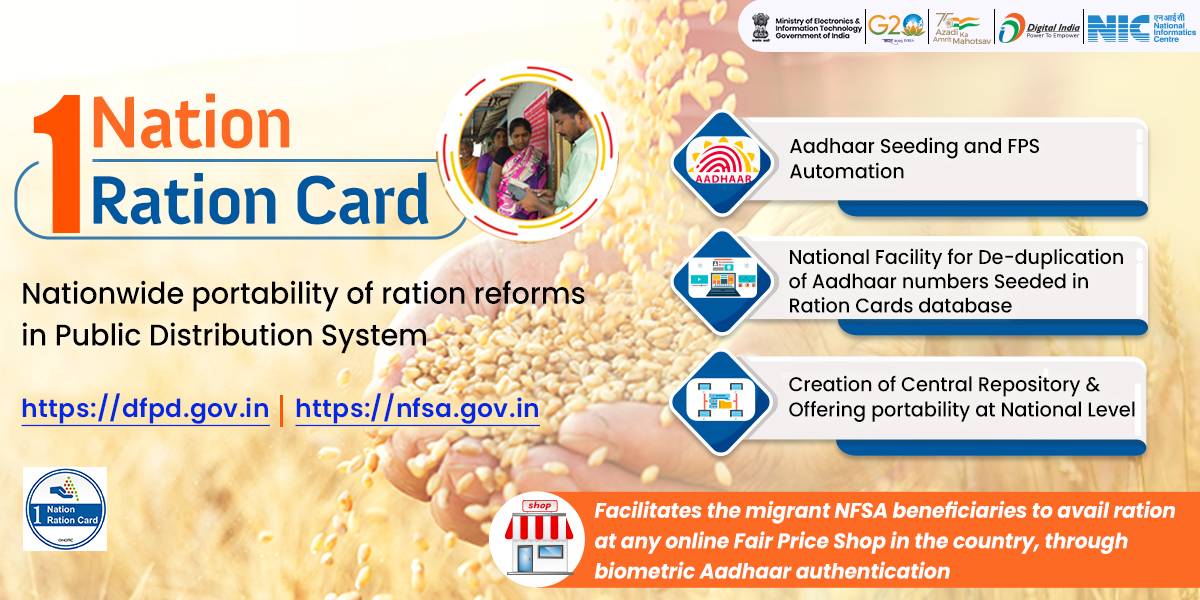
In a significant stride towards enhancing the efficiency of the Public Distribution System (PDS), approximately 99.8% of ration cards in India have been successfully seeded with Aadhaar. This achievement reflects the nationwide implementation of the One Nation One Ration Card (ONORC) plan across all 36 States and Union Territories (UTs), underscoring its pivotal role in ensuring the rightful targeting of PDS beneficiaries.
Ensuring Food Security for 80 Crore Beneficiaries
The ONORC plan, initiated to streamline the distribution of essential food items, has proven particularly beneficial for vulnerable groups such as migrant laborers and internally displaced persons (IDPs). With the flexibility to access their entitled foodgrain from any Fair Price Shop (FPS) nationwide, beneficiaries can now exercise greater control over their food security, even in the face of frequent relocations in search of temporary employment.
Since the inception of the ONORC plan, an impressive 124 Crore portability transactions have been recorded, encompassing both inter-state and intra-state movements. These transactions have collectively safeguarded the food security of approximately 80 Crore beneficiaries, highlighting the plan's success in addressing the diverse needs of a vast population.
Transparent Transactions & Technological Advancements
A paradigm shift in the transparency of PDS transactions is evident, with around 97% of monthly transactions now conducted through biometric authentication using electronic Point of Sale (ePoS) devices. The Aadhaar seeding and widespread installation of ePoS devices at Fair Price Shops have played a pivotal role in this, ensuring a secure and transparent distribution process.
Recognizing the importance of Aadhaar seeding, the Department has extended the timeline for completion until March 31, 2024. States and UTs have been directed to refrain from deleting genuine beneficiaries or denying entitled foodgrains to Pradhan Mantri Garib Kalyan Anna Yojana (PMGKAY) beneficiaries due to Aadhaar-related issues. An inclusive approach allows the use of alternative identification documents until Aadhaar is assigned to beneficiaries.
Until Aadhaar is assigned, beneficiaries can use any of the eight specified identification documents, including Voter ID Card, PAN Card, Passport, Driving License, Certificate of Identity issued by Gazetted Officer/Tahsildar, Address card by the Department of Posts, Kisan Photo Passbook, and any other document specified by State/UT Governments.
















